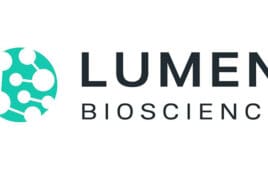 Pfizer (NYSE:PFE) and BioNTech (Nasdaq:BNTX) have begun a Phase 1 study to investigate the next-generation BNT162b4 COVID-19 vaccine candidate that could potentially result in a stronger and more durable immune response.
Pfizer (NYSE:PFE) and BioNTech (Nasdaq:BNTX) have begun a Phase 1 study to investigate the next-generation BNT162b4 COVID-19 vaccine candidate that could potentially result in a stronger and more durable immune response.
Known as BNT162b4, the vaccine candidate has a T cell antigen mRNA encoding for SARS-CoV-2 non-spike proteins that are conserved across various variants.
The first-generation mRNA-based COVID-19 vaccines encoded the spike protein of the original SARS-CoV-2 virus. The second-generation mRNA-based boosters distributed in the U.S. encode both the spike protein from the original SARS-CoV-2 virus and the BA.4/BA.5 sub-variants.
Earlier this year, Mikael Dolsten, Pfizer’s president of worldwide R&D and medical, said the company aimed to “deliver a next-generation COVID-19 vaccine that can provide durable antibody and T cell immune protection against severe disease and hospitalization for at least one year.”
Dolsten noted that Pfizer intended to “take a stepwise approach by designing and testing different candidates that engage multiple arms of the immune system, including antibodies and T cells.”
While two doses of the first-generation mRNA vaccines initially showed a high efficacy of approximately 95%, the effectiveness of those vaccines waned with time. However, the vaccines continue to offer strong protection against severe disease. The situation led to demand for additional vaccine doses.
“People are now confused about what it means to be fully vaccinated,” Dr. Paul Offitt, director of the Vaccine Education Center and professor of pediatrics in the Division of Infectious Diseases at Children’s Hospital of Philadelphia, wrote in NEJM.
Pfizer and BioNTech will investigate BNT162b4 in the U.S. study (NCT05541861), including roughly 180 healthy participants between 18 and 55. Participants in the study will have received at least three prior doses of an mRNA-based COVID-19 vaccine.
The study will test the immune response of BNT162b4 versus the Pfizer-BioNTech BA.4/BA.5-adapted bivalent COVID-19 vaccine.
Although demand for the COVID-19 vaccine is falling, they supercharged Pfizer’s and BioNTech’s revenue in 2021. Between the two companies, sales of the BNT162b vaccine drove $59 billion in revenue last year.
The Pfizer-BioNTech COVID-19 vaccine and booster are among the most popular worldwide.
PFE shares edged up 0.57% to $48.33 in late afternoon trading, while BNTX shares fell 0.41% to $164.23. Shares of Moderna (Nasdaq:MRNA) shares fell 2.18% to $181.22.
In related news, Pfizer and BioNTech announced that their BA.4/BA.5-adapted bivalent booster fared well against novel various omicron variants in neutralizing antibody detection assays.
Filed Under: Infectious Disease





Tell Us What You Think!
You must be logged in to post a comment.